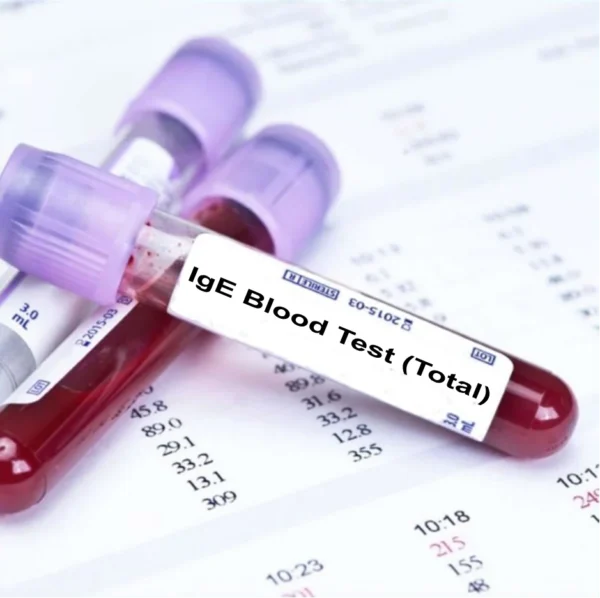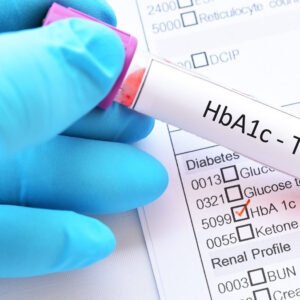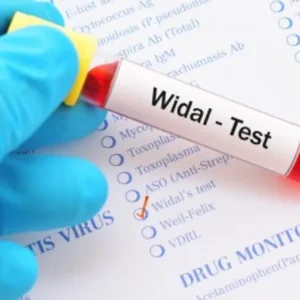Description
IgE Total Antibody Test
This test is an important tool for identifying allergic tendencies and understanding unexplained skin, breathing, or digestive symptoms.
Why It’s Done
| Health Area | IgE’s Role |
|---|---|
| Allergy Detection | Helps diagnose allergic reactions (dust, pollen, food) |
| Skin Disorders | Assesses eczema, hives, and rashes |
| Respiratory Issues | Supports diagnosis of asthma and allergic rhinitis |
| Digestive Symptoms | Helps investigate food sensitivities |
| Parasitic Infections | Elevated levels can also indicate parasitic exposure |
IgE Levels & Interpretation
| IgE Level | Interpretation |
|---|---|
| < 100 IU/mL | Normal IgE levels |
| 100–300 IU/mL | Mild to moderate allergy risk |
| > 300 IU/mL | High IgE – Strong allergic response or infection |
Common Allergy Symptoms That May Need IgE Testing
-
Sneezing, runny nose, or nasal congestion
-
Itchy skin, rashes, or hives
-
Wheezing, coughing, or shortness of breath
-
Stomach discomfort after eating certain foods
-
Chronic sinus or respiratory infections
Why Choose an IgE Test?
-
Detect hidden allergies before they worsen
-
Manage chronic respiratory or skin issues
-
Evaluate response to allergy treatment
-
Guide next steps (e.g., specific allergen testing)
-
Useful for both children and adults with unexplained symptoms









 Urine Routine Test
Urine Routine Test
Reviews
There are no reviews yet.